About
Acknowledgments
Remembering nuclear victims around the world
Seiichiro Takemine
The work to uncover compensation systems for nuclear victims around the world, which forms the basis of this website, was made possible with the help of people who provided information through research in various regions. The research and this website were made possible through a grant from the Toyota Foundation, including JSPS KAKENHI Grant Numbers 19H04355 and 18K18261.
This wonderful website was created by web designer Ryoko Kubota. We are also grateful to The Center for Peace at Hiroshima University for their cooperation in its creation and operation.
For English translation and proofreading, we received assistance from Yuichi Yokoyama, Annelise Giseburt, and others. Tsubasa Shinohara also assisted in the translation of Japan’s Atomic Bomb Survivors Support Law.
This website is made possible by the support of many people, including those who have not been named, who care about the struggles of nuclear victims around the world. We would like to express our deepest gratitude to all those who support us.
Endorsement
With Prayers for a “Nuclear-Free World”
Mitsuru SHIRAHAMA, P.S.S.
Bishop of Hiroshima
On July 7, 2020—six months after Pope Francis visited the two atomic-bombed cities, Hiroshima and Nagasaki, and only about one month before the 75th anniversary of the bombings—the “Nuclear-Free World Foundation” was established with the hope of promoting, from Hiroshima and Nagasaki, civic activities aiming for the abolition of nuclear weapons.
Established exactly three years after the Treaty on the Prohibition of Nuclear Weapons (TPNW) was adopted at the United Nations, the Nuclear-Free World Foundation pursues three objectives:
1: Support activities for increasing ratifications of the TPNW
2: Support people and places around the world harmed by radiation related to nuclear weapons
3: Support activities for promoting the abolition of nuclear weapons
In relation to the foundation’s second objective, I hope this website, organized by Professor Seiichiro Takemine and Professor Noriyuki Kawano, will provide valuable information to stimulate discussions for promoting victim assistance and international cooperation stipulated by Articles 6 and 7 of the TPNW.
Contributor Profiles
-
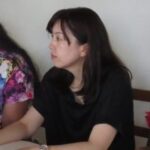
- Kyoko HirabayashiShe is a program-specific senior lecturer at Kyoto University. She holds a doctorate from Hiroshima University. While a graduate student at Hiroshima University, she became involved in research of nuclear damage at the Semipalatinsk Nuclear Test Site in Kazakhstan, which she has continued to the present.See analysis
-
-コピー220-1-150x150.jpg)
- Komei HosokawaProfessor Emeritus, Kyoto Seika University. Chief Secretary, the Citizens’ Commission on Nuclear Energy (CCNE). He holds a doctorate from the Australian National University. His research focuses on land rights and native title issues of Indigenous Australians. He has also been closely following the social issues related to uranium mining, nuclear energy politics and the Fukushima nuclear disaster.See analysis
-
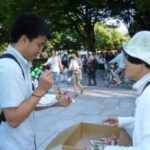
- Yang XiaopingHe is a visiting researcher at Hiroshima University’s Center for Peace. He holds a doctorate from Hiroshima University, for which he wrote his thesis based on over 10 years of experience as a Peace Volunteer Guide at Hiroshima Peace Memorial Museum.See analysis
-
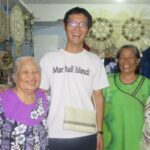
- Seiichiro TakemineHe is a professor at Meisei University. Alongside conducting fieldwork in the Marshall Islands for over 20 years, he established a Global Hibakusha Subcommittee at the Peace Studies Association of Japan and has been researching nuclear victims around the world. He holds a doctorate from Waseda University.See analysis
-
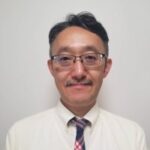
- YAMADA ToshinoriHe is a lecturer of international law in Meiji University’s School of Law and a senior researcher of the Insititute of Politics and Economy in Tokyo, Japan. He has served on the International Association of Lawyers Against Nuclear Arms’ (IALANA) a board member and has helped build an international network of lawyers working on nuclear issues. He participated in the negotiation for the Treaty on the Prohibition of Nuclear Weapons.See analysis
-
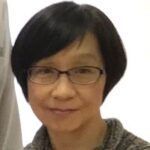
- Katsumi FuritsuShe is a doctor specializing in internal medicine and holds a doctorate in medicine. She provides support for victims of the Chernobyl nuclear accident and radiation-related health counseling in Fukushima. She also conducts research on the multi-generational health effects of radiation. In 2012, she received the “Nuclear-Free Future Award” for her work.See analysis
-
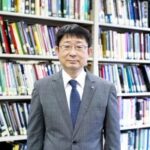
- Noriyuki KawanoHe is a professor and director of The Center for Peace at Hiroshima University. He holds a doctorate in medicine. His research focuses on the psychological and social effects on victims and survivors of the atomic bombing of Hiroshima, nuclear tests in Semipalatinsk, and the Chernobyl nuclear accident.See analysis
-
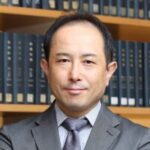
- Hironao OzakiHe is a professor at Tokyo Keizai University, specializing in environmental policy and environmental welfare. He has pioneered comparative research on pollution damage compensation systems.See analysis
-
- Toshiki MashimoHe studies French nuclear policy, a pillar of France’s postwar national strategy, including both military and civilian uses of nuclear energy. He has interviewed and maintains contact with victims of French nuclear tests in France, French Polynesia, and Algeria.See analysis
-
- Yuichi YokoyamaSee analysis
-
- Tomoyo TamayamaAs an independent researcher, she has built a network with Indigenous peoples in the southwest U.S. to address radiation damage issues, including those from uranium mining. She is also an organic farmer and is a member of her local Nuclear Disaster Preparedness Review Committee.See analysis




